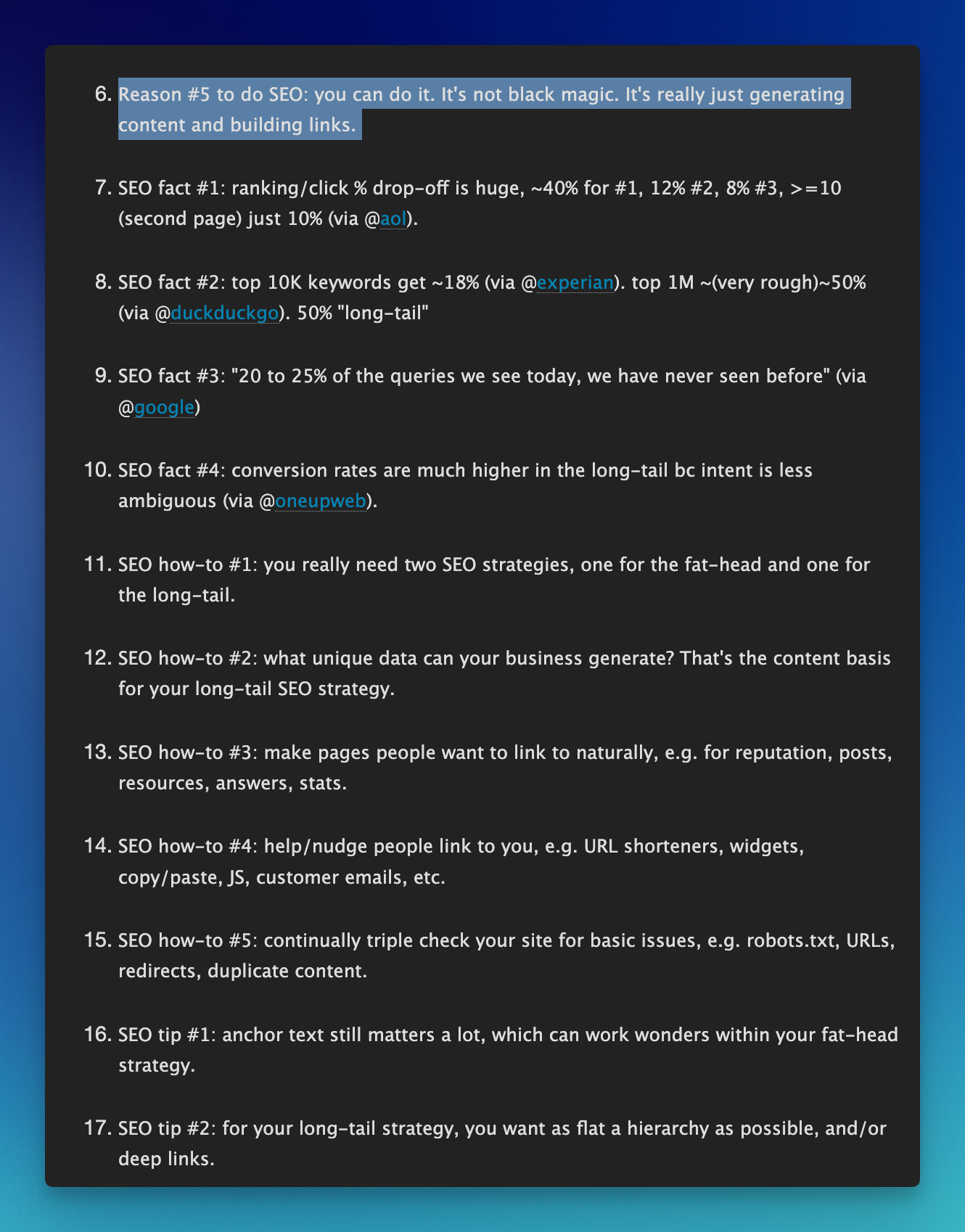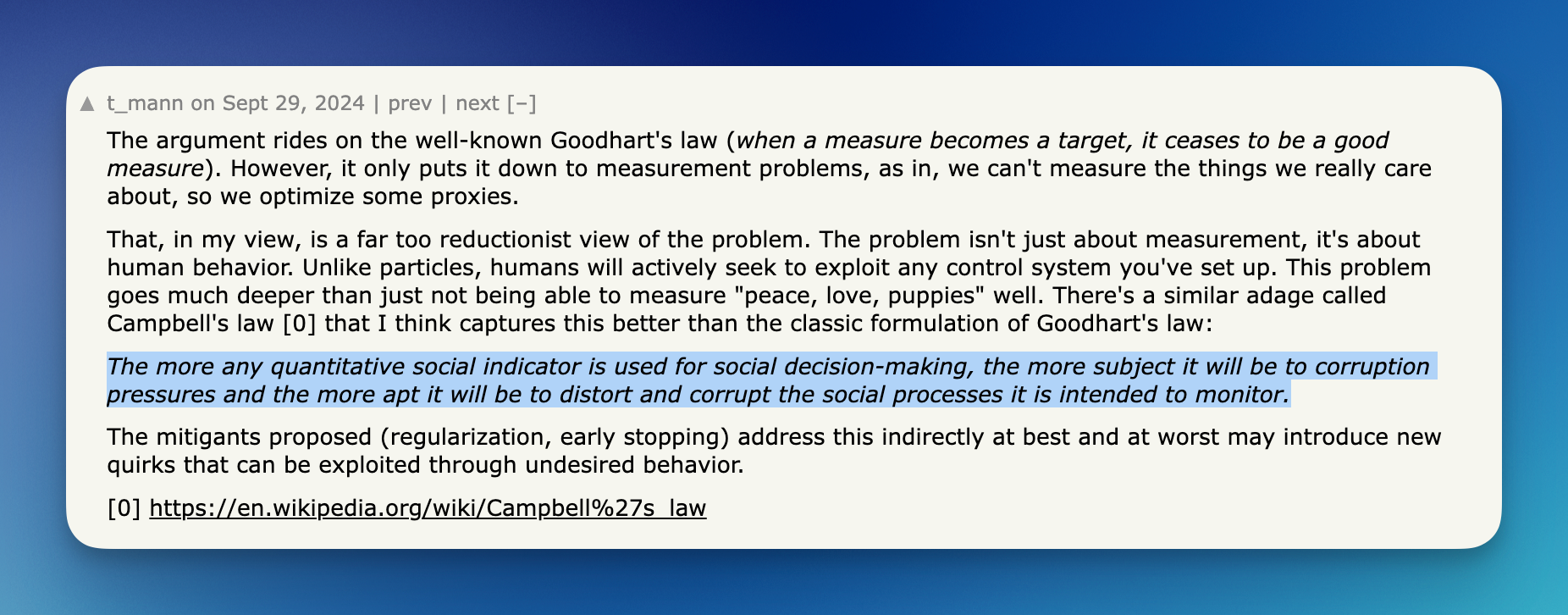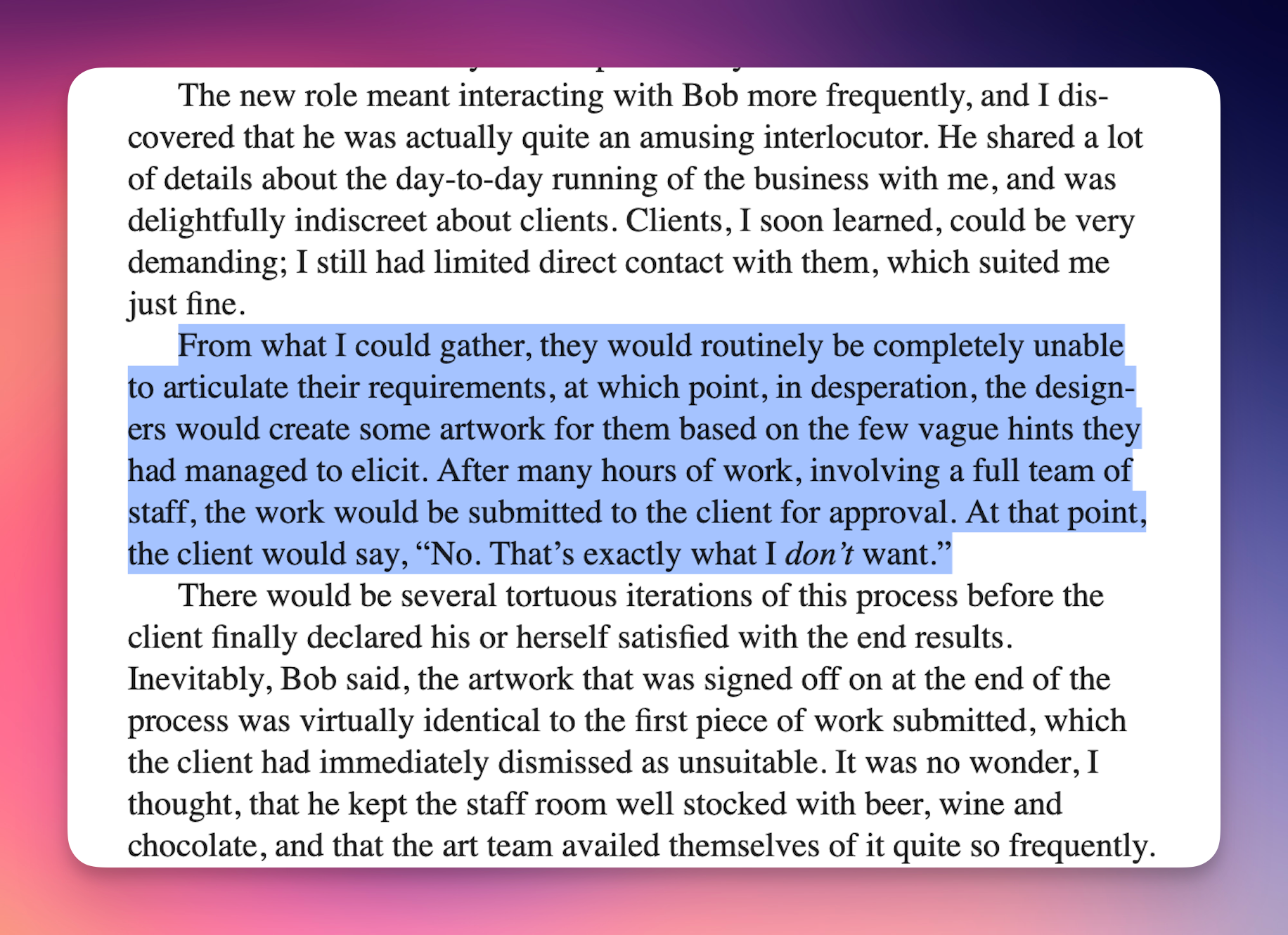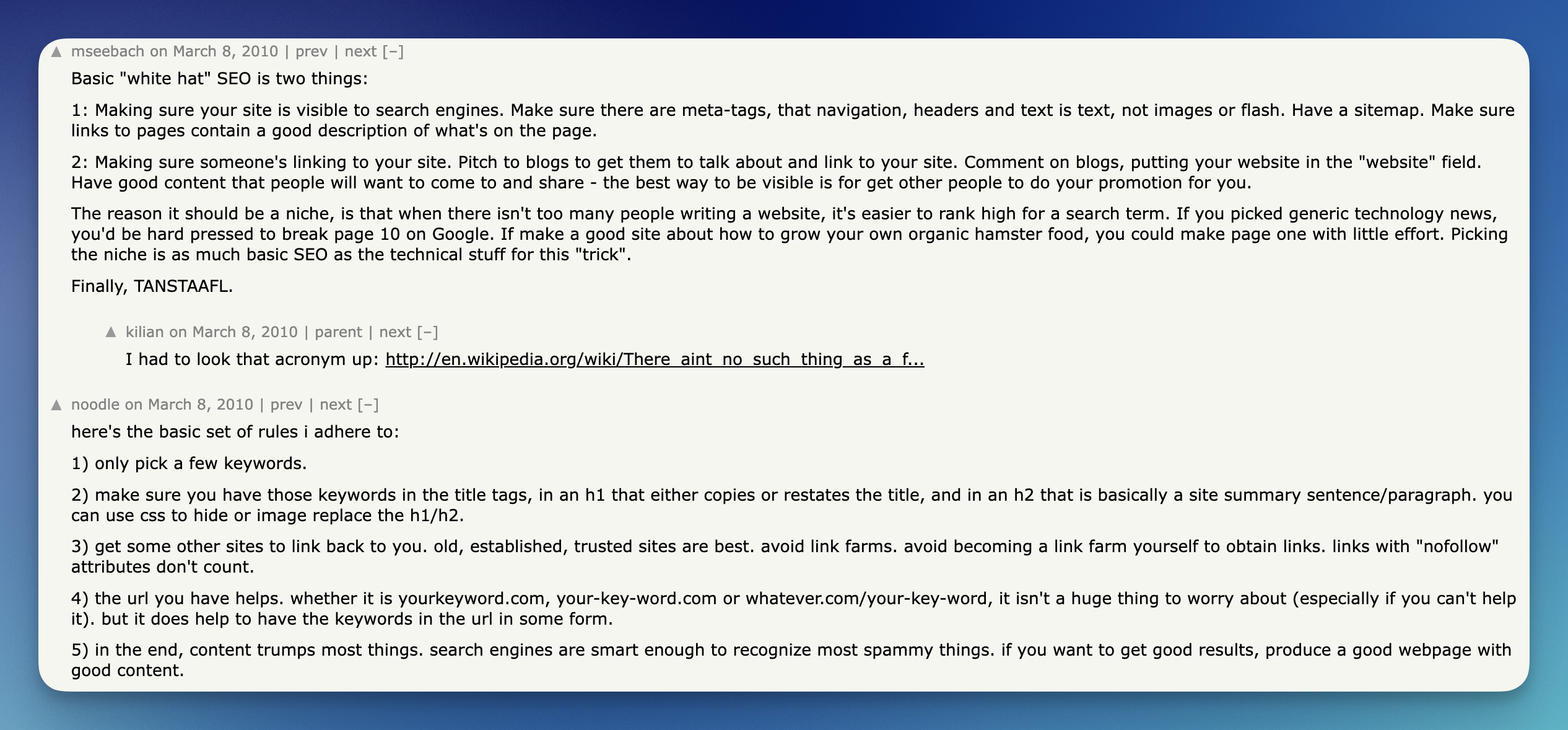How to hire an SEO Agency?
TL;DR
Don’t hire any agency — hire any junior with 2 years of experience, start slow, and build an internal team of 2-3 in two years.
Even if you can’t build a team, SEO is not rocket science. If you implement just the time-tested 10 rules, then you’ll get all the basics right.

To get started with the basics, you don’t need any agencies; it can be done internally with the help of one marketeer (even with zero SEO knowledge but a curiosity to learn), a developer, and one or two tools.
Now let's get back to the topic:
Always start with a clear goal tied to your sales pipeline.
Whatever metric you choose, ask yourself: "How will this actually bring in business?"
SEO agencies typically promise three things. Let's break down what actually matters:
1. Traffic improvement: More traffic sounds great, but it's meaningless if it's the wrong people visiting. A thousand visitors searching for "free tools" won't help if you sell enterprise software.
Ask: "Which keywords will drive this traffic? Which pages will they land on?" Focus on traffic that converts and brings business, not just numbers.
2. Better keyword rankings: Ranking #1 for 50 keywords means nothing if those keywords don't directly match what your buyers search for.
Focus on keywords your actual customers use when they’re ready to buy, or have a high likelihood of purchase intent—quality over quantity.
3. On-page optimization: Sure, optimizing pages is important. But are they optimizing the pages that matter?
Make sure they're working on the pages that drive more conversions, not just tweaking random blog posts.
The bottom line: For every metric an agency proposes, ask "How does this help my sales pipeline?"
A warning: Remember Goodhart's Law—when a measure becomes a target, it stops being a good measure. If you only focus on hitting one metric, people find ways to game it. You might get your traffic numbers up while actual business results tank. Keep your eye on what really matters: revenue, product signups, and qualified sales conversations.

You don’t need an external resource. You need a trusted partner.
Most SEO agency relationships fail not because the agency is bad, but because they lack context. The seo agency must be an extension of your demand generation team. They must not work in isolation.
When you treat an SEO agency as an external vendor, here’s what they typically get as input:
- Redacted data in spreadsheets
- Carefully curated internal product reports
- Weekly calls that barely scratch the surface
That’s not enough context to deliver meaningful results.
Think about it: if an agency is doing keyword research, content optimization, or conversion optimization — how can they do it well without knowing your product, your customers, your competitors, and your sales motion?

All of that context lives inside your company. Without it, most agencies will miss the mark — not because they’re incompetent, but because they’re blind.
The best SEO partners are those who:
- Understand and believe in your product’s promise
- Know your customers’ pain points
- Grasp how your sales process actually works
They don’t just optimize for clicks — they optimize for outcomes that matter to your business.
So, don’t look for an external resource.
Look for a partner you can trust enough to bring inside — someone who cares about your business as much as you do.

Think Long-Term — SEO Needs Time to Work
When working with an SEO agency, always think long-term. SEO is not a “quick win” channel — it’s a compounding investment.
Once you hire an agency, expect at least a month for onboarding — for them to understand your product, your market, your website, and your current challenges. That’s just the warm-up.
Real, tangible results typically take 12 to 15 months to show.
Sure, there are some quick wins early on —
- Fixing technical SEO issues
- Cleaning up on-page optimizations
- Improving site speed or internal linking
These can move the needle a bit, but don’t expect a 30% jump in traffic just because you fixed a few meta tags or published a couple of blogs.
If you’re entering a crowded category — say, CRMs or project management tools — you’re competing against players with years of SEO momentum. You can’t outrank that overnight.
Instead, think in milestones.
Set quarterly goals — not just vanity metrics, but clear deliverables:
- What should be audited or fixed
- What content should be created
- What growth indicators to track
And most importantly, build in a leeway for error.
Every product, market, and industry behaves differently. If the agency promises a 10% traffic uplift, manage your expectations — aim for 7% and leave room for variability.
SEO success rarely follows a straight line. Things will go wrong, algorithms will shift, competitors will react — and that’s okay. What matters is that the trajectory keeps pointing up.

Reporting: Measure What Really Matters
I’ve worked with a lot of SEO agencies, and one thing I’ve noticed — every monthly catch-up feels the same. There’s a spreadsheet with ten tabs, a bunch of colorful graphs, and somehow every number is in green and every arrow is pointing up.
It all looks great — until you realize you have no idea what any of it really means for your business.

Most of the time, you don’t need twenty different metrics. You just need two good ones — the right ones. For example, traffic and impressions going up might look nice on a chart. But try overlapping that graph with your product signups, or sales conversations, or pipeline value — and the story might change completely.
Ideally, both lines should move together. If your traffic graph is climbing but your pipeline graph is flat, something’s off. That’s the difference between activity and impact.
Traffic and impressions are leading metrics — they tell you what’s happening on the surface. But the lagging metrics — signups, demos, deals — tell you if that activity is actually working.
So, keep it simple. Here’s what I usually do:
1. Pick 10–15 keywords you believe can bring real business value. Track their rankings closely.
2. Pick 10–15 landing pages that matter most to revenue. Optimize them ruthlessly.
3. Then, track how those pages and keywords connect to actual sales conversations or pipeline growth.
That’s it. You don’t need 10 KPIs. You need a few that tie back to business outcomes.
Also, remember — in B2B SaaS, the sales cycle can be long. Sometimes 6 months, sometimes a year. That means the lagging metrics will always take time to show up. So be patient, keep tracking, and look for trends over time — not overnight wins.
In the end, it’s not about proving the SEO agency’s worth every month. It’s about learning what really moves the business forward.
Make Sure Your SEO Agency Has Skin in the Game
If you’re hiring an SEO agency, make sure they have skin in the game.
That means they share not just in the wins, but also in the risks.
It’s your responsibility to build processes, define metrics, set timelines, and shape projects in a way that keeps everyone accountable. Structure things so that the agency feels the weight of the outcomes — not just the comfort of the retainer.
Before starting any project, spend time identifying what can possibly go wrong. Talk about it openly. That conversation alone will help both sides align expectations and avoid future frustration.
“Never trust anyone who doesn’t have skin in the game. They’ll tell you what you want to hear, not what you need to know.”
And another one that always sticks with me:
“Having skin in the game means you are exposed to the real consequences of your actions.”
That’s the kind of relationship you want with your SEO agency. One where both sides have something at stake — where results aren’t just reported, but felt.
Because when everyone shares in the upside and the downside, the work becomes sharper, the goals become clearer, and the trust becomes real.
